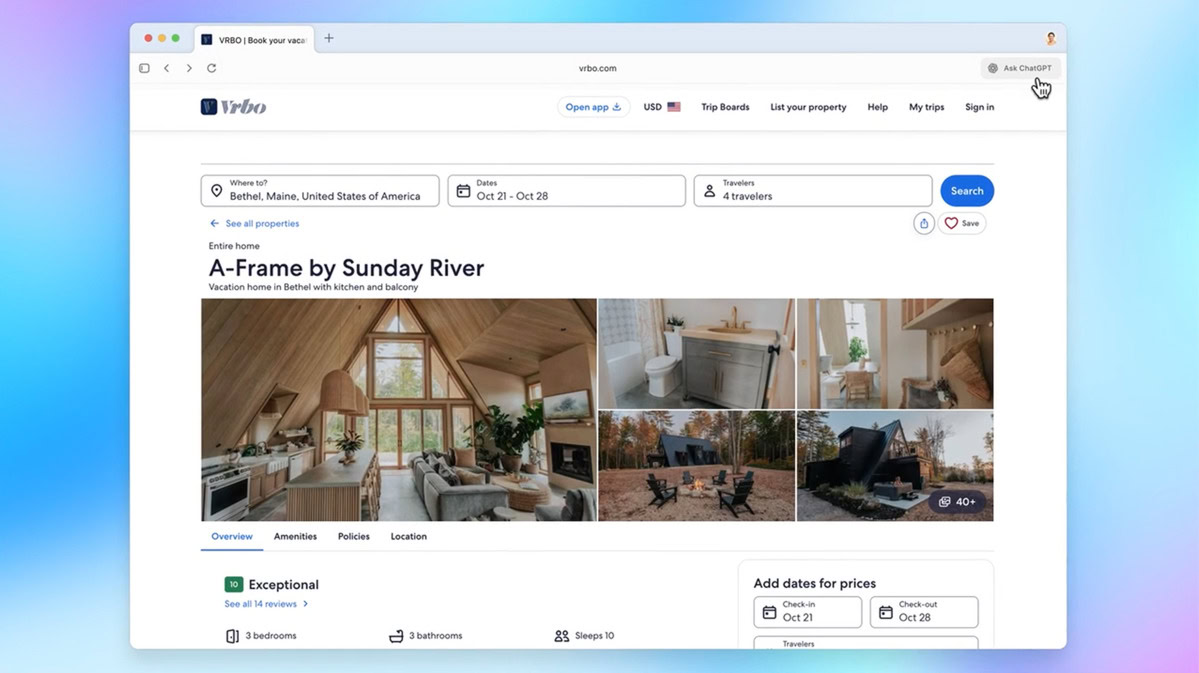OpenAI just fired a major shot across the bow of Google‘s long-standing web dominance. The company officially launched its new AI-powered web browser, aptly named ChatGPT Atlas. The browser was designed from the ground up to fundamentally change how people use the internet. According to employees who spoke during the launch livestream, ChatGPT is the “beating heart of Atlas.”
The company’s next move in its battle against Google is now clear. They’re aiming to replace the traditional search experience with a chat-based one. OpenAI CEO Sam Altman envisions a future where the browser’s chat capabilities feel like a natural, constant extension of the internet itself. We could say this is the third big “AI-powered web browser” after Perplexity’s Comet rollout and Google Chrome’s recent AI update.
ChatGPT Atlas brings an ever-present AI browsing companion
ChatGPT Atlas’s design maintains a simple, familiar feel, featuring a standard search window much like Safari or Chrome. However, it quickly separates itself from the competition with core AI functionality.
When a user performs a search, Atlas opens with a direct, ChatGPT-based answer. Crucially, when a user clicks a link from those results, the browser defaults to a split-screen view. This UI will show the webpage alongside the ChatGPT transcript. Basically, the AI is a constant “companion,” ready to act as a summarizing tool, a fact-checker, or an expert on the content you are viewing without forcing you to copy and paste text. If you prefer a traditional view, you can simply turn off the split-screen companion.
The browser also boasts a feature called “Cursor Chat” for editing text inline, such as tidying up a sentence directly within an email draft or document.
One of the most interesting features is the built-in memory. Atlas learns about the user over time, logging visited websites and activities to provide increasingly personalized and relevant answers. Users maintain full control, managing this memory through the settings or opening an incognito window whenever they wish to browse without tracking.
The agent that acts for you
Atlas’s most powerful function is its Agent Mode. This capability, which builds on OpenAI’s previous tools like the “Operator,” lets the AI actually take complex actions on your behalf. This feature seems similar to Perplexity’s Comet’s abilities. Users can ask ChatGPT to complete multi-step, web-based tasks like booking restaurant reservations, ordering groceries based on an online recipe, or automatically filling out a complex online form. It’s noteworthy that only Plus and Pro subscribers get access to the full Agent Mode capabilities at launch.
While this agentic AI represents the future, the company acknowledges that reliably automating highly complex tasks remains a work in progress. Making AI consistently work reliably for these cases is a challenge not only for OpenAI but across the industry. After all, there are tasks that involve everything from personal data to users’ money. Therefore, an error on the part of the AI could result in significant damage.
Availability
The browser is available globally on macOS today, with versions for Windows, iOS, and Android “coming soon.” While Google already offers AI browsing features, Apple’s Safari currently lacks this integration. This is something that the Cupertino giant may need to address if it wants to keep pace with the competition.
The post OpenAI’s ChatGPT Atlas Enters the AI-Powered Browser Market appeared first on Android Headlines.

Source: ndroidheadlines.com